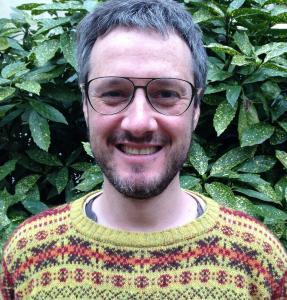Integrating Theoretical Algorithmic Ideas in Empirical Biological Study
In recent years, several works have demonstrated how the study of biology can benefit from an algorithmic perspective. In this
talk I discuss a new approach for such a methodology based on combining theoretical tradeoff techniques with biological experiments to
obtain bounds on biological parameters. A proof of concept for this paradigm is provided by considering central search foraging strategies
of desert ants, and obtaining theoretical tradeoffs between the search time and the memory complexity of individuals. Informally, we show
that if the time-competitiveness of the search algorithm is below $\log k$ then the memory size of individuals (when starting the
search) must be roughly $\log\log k$, where $k$ is the total number of individuals. Combining such bounds with successful experiments on
living ants would provide a lower bound on the number of states ants have when commencing the search. Such a lower bound may serve as a
quantitative evidence regarding the quorum sensing mechanism performed inside the nest.
This talk is based on a recent work with Ofer Feinerman (Weizmann Institute)

